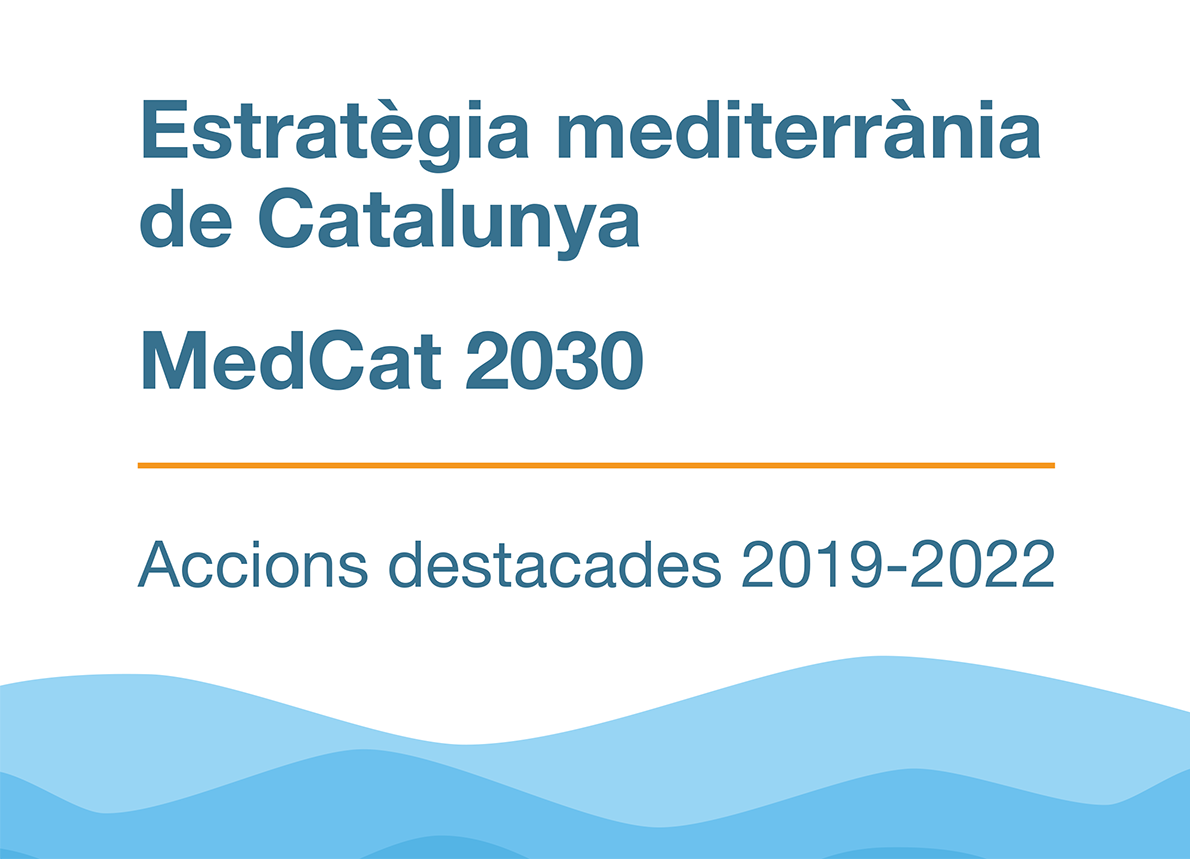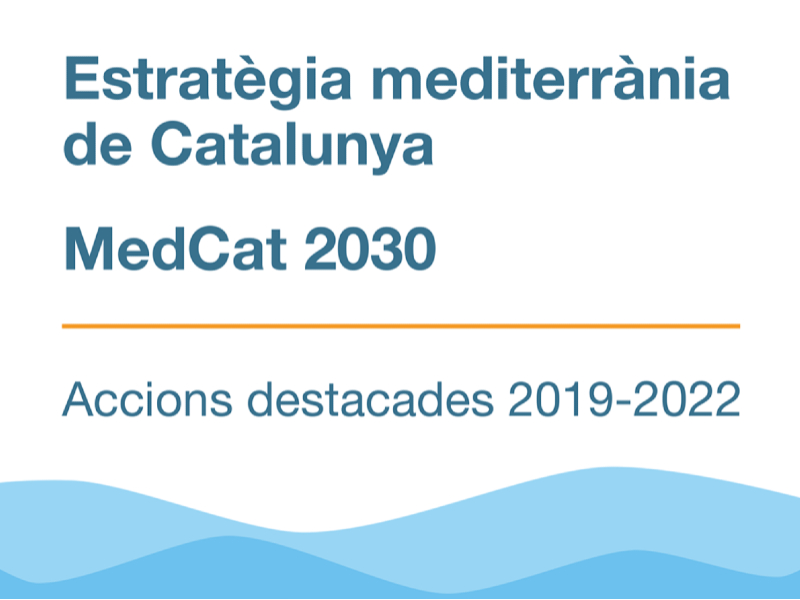- The Ministry for Foreign Action and European Union highlighted some sixty good practices that solidify Catalonia as a benchmark in the Mediterranean

The Government of Catalonia promoted a total of 821 actions between 2019 and 2022 within the framework of the Mediterranean Strategy of Catalonia, MedCat 2030, the road map for Catalonia's foreign action in the Mediterranean. This was the focus of the publication onMedCat's key actions for 2019-2022, which highlights around sixty of the most relevant actions promoted by the ministries and agencies of the Government of Catalonia over the four-year period. These actions are presented as models of good practice that position Catalonia as a benchmark in the Mediterranean. The Catalan Government's Secretary for Foreign Action,Miquel Royo, said that the document reflects the Government's work in promoting "Catalonia's international impact so that it becomes a true hub in the Mediterranean".
According to the Secretary, "the actions we present are representative of a way of doing and understanding the Mediterranean", which is linked "to diversity, dialogue and neighbourliness"."Consolidating, promoting and deepening our presence in the Mediterranean is part of Catalonia’s institutional mandate and its fully pro-European and pro-Mediterranean approach,"he stated. In this respect, the Catalan Government is committed to working to ensure that the Euro-Mediterranean dimension plays a central role in European Union policies, with the aim of ensuring that the Mediterranean perspective is increasingly present in order to face common challenges such as climate change.
Over 800 actions in the Mediterranean
The published document shows the result of the work carried out between 2019 and 2022, which culminated in821 actions promoted by ministries, of which 372 have been completed, 354 are in progress and 95 are being prepared. The actions deployed focus mainly on supporting civil society as transformative agents (174); research and innovation (125); development cooperation (69); moving towards the attainment of the Sustainable Development Goals (79); promoting the circular, green and blue economies (61); and macroregional initiatives in the framework of networks such as the Euroregion Pyrenees Mediterranean, currently chaired by Catalonia, the Conference of Peripheral Maritime Regions (CPMR-CIM) or the Working Community of the Pyrenees (CTP) (56).
Twenty per cent of these actions are deployed through European projects related to the Mediterranean, a line of work that the Catalan Government is strengthening. All this work has been key tostrengthening Catalonia's ties with the southern European regions, which account for 65% of total activity. Relations with southern neighbours, which are being stepped up,now account for up to a third of Catalonia's actions in the Mediterranean.
Actions of this sort include the signing of collaboration agreements with territories such asEmilia-Romagnain Italy, or withthe Provence-Alpes-Côte d'Azur regionin France, or thecross-border cooperation agreement with Occitania, as well as the organisation of numerous events to promote Catalonia as a Mediterranean hub, such as the different editions of theMedCat Days. Learn more about the actionshere.
The momentum of the Mediterranean macroregion
The Ministry for Foreign Action and European Union is currently drafting the next MedCat Action Plan 2022-2026 based on engagement, advocacy and alliances. The aim is for the Catalan Government to reaffirmits commitment to collaboration with the entire Mediterranean basin, especially with projects such as the Mediterranean macroregion. This initiative will contribute to the integration of the Euro-Mediterranean area and provide answers to the needs of its territories and citizens.
Catalonia has led the promotion of the Mediterranean macroregion from the outset,as it is committed to this project, which should help strengthen Euro-Mediterranean cooperation to provide a response to global challenges. Among other initiatives, it has promotedthe Friends of the Mediterranean Macroregionalliance, which aims to form a community of key institutions and stakeholders who believe that the time has come to strengthen cooperation in the Mediterranean.
Within this framework, the Catalan Government has heldseveral meetings to share the Catalan strategy to move the macroregion forward, such as with the Council of the Region of Tanger-Tetouan-Al-Hoceima and the French region of Provence-Alpes-Côte d'Azur. More recently, there werePresident Aragonès's trip to Marseillesand that ofMinister Meritxell Serret to Tunisia, andthe Catalan Government's meetings earlier this month with the French Government. In addition,the President met in mid-May with the President of Occitania, Carole Delga, to whom he conveyed his conviction of promoting the macroregion and making Europe look towards the Mediterranean. Aragonès also defended the promotion of the project at theGovernment of Catalonia's takeover of the presidency of the Euroregion Pyrenees Mediterranean, which it will hold until 2025.


